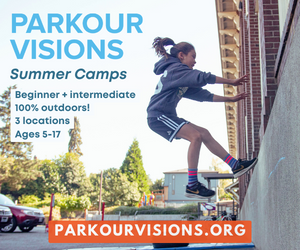Along with changing classes and electives, middle school emotions bring changes that can sometimes feel like you are stuck on a roller coaster. At first, the mood changes might be dismissed as hunger or fatigue and then all of the sudden you recognize them as the stage you were warned about. The chatty kids wanna tell you every. single. detail of what happened from lunch to their after school hangouts. The quiet ones maybe spend more time in their rooms. Everyone seems more irritable, including you. You can’t seem to say anything right and then an hour after then yell at you they want your help or some advice.
Weren’t They Just Little Kids?
Your child is older now and they are making their own social engagements. Maybe they have their own phone or are asking for yours so they can text their friend’s mom about a hang out. You are increasingly out of the loop. And this is nice. And sometimes it also feels not so nice. Things can get emotional — fast.

We are in the habit of solving their problems. We have been doing it for so long that it’s second nature. Now is the time to remember that many of their problems are theirs to solve. It’s never a bad idea to help them figure out problem-solving techniques, but avoid the temptation to tell them what to do.
Watching your kids struggle is really hard. It’s also really important. They need to know how to fail so that they aren’t blindsided by failure as adults. Most of us know this intellectually, and yet practicing can be difficult.
Generally speaking, middle schoolers don’t tend to be chill. ALL of their feelings are big. They often seem to have two moods: elated or sullen. Or maybe we just notice those more because they seem to require attention. You are minding your business, shuttling them to activities and BOOM! All of the sudden you are in the middle of an escalating argument that you aren’t sure how to stop.
Prepare, Prepare, Prepare

I often suggest a calming exercise or even just “bracing yourself” before you child comes home from school/ a sleepover/a play practice, etc. You likely have your own irons in the fire and it will require your undivided attention (and Herculean emotional strength) to listen to them, acknowledge whatever mood they are feeling without judgement, genuinely let them know you are sorry and that it sucks.
And then you have to move on. Let them be sullen. It will backfire if you tell them they shouldn’t be upset about something. Many parents find themselves getting wrapped up in whatever emotion their child is feeling. It’s easy to do and I can’t readily identify anyone who successfully stays above the fray all the time. When my child is irritated by something I don’t feel is justified, I often get irritated. When I successfully coach myself into realizing that their stress isn’t mine and can just walk away after acknowledging their feelings, things go better for everyone. If not well, you know….I simply resolve to do better next time.
If you prepared and the emotional whirlwind you were ready for doesn’t happen, then pat yourself on the back for preparing, exhale, and celebrate the easier moment!


















